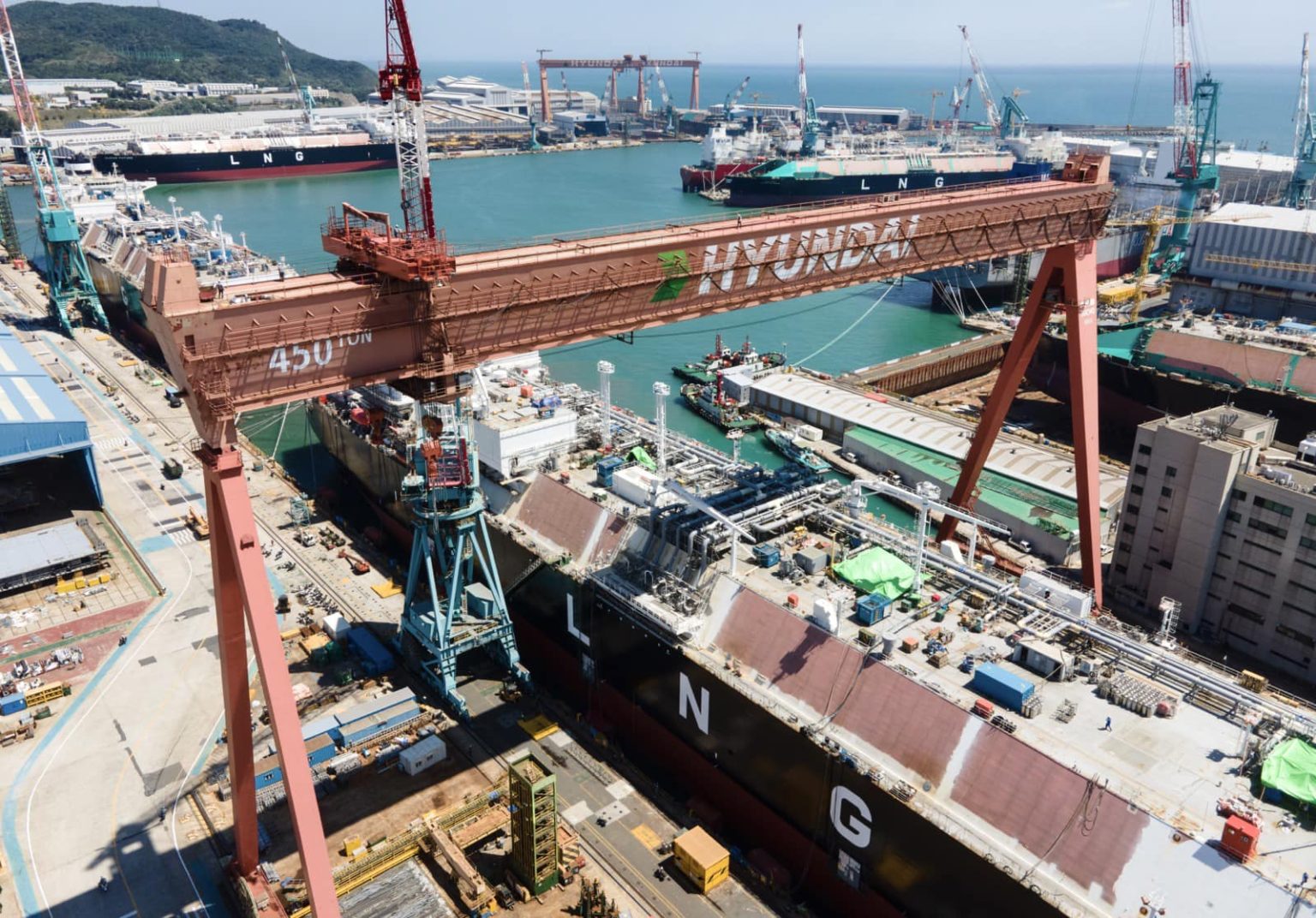South Korean shipbuilder HD Hyundai Heavy Industries has received approval from classification society DNV for a new LNG carrier design with three cargo tanks.
DNV said in a statement on Thursday it has granted a general approval for ship application (GASA) to HD HHI.
A key design innovation is a streamlined configuration with three instead of four LNG cargo tanks, it said.
This is intended to maximize cargo capacity and reduce the number of pump towers and associated cryogenic equipment, such as liquid and gas domes, valves, and piping.
As a result, maintenance costs are expected to be minimized, offering “substantial” savings over the vessel’s operational life, according to DNV.
In addition, HHI’s implementation of GTT’s Mark III Flex technology can reduce the daily boil-off rate from 0.085 percent to 0.08 percent, which is anticipated to result in a decrease in electricity consumption of the cargo handling system, including the reliquefaction plant, thereby contributing to reducing OPEX, it said.
Furthermore, it is expected that cargo unloading operation time will be unchanged by maintaining an arrangement of two cargo pumps with increased capacity per pump tower, DNV said.
“By expanding the application of proven technologies, HHI has successfully maximized cargo capacity while maintaining the traditional hull design, ensuring vessels remain highly competitive,” the statement said.
HD Hyundai Heavy won orders for two LNG carriers and one FSRU this year.
According to Hyundai Heavy, as of the end of August this year, it had 64 LNG carriers in its backlog.

